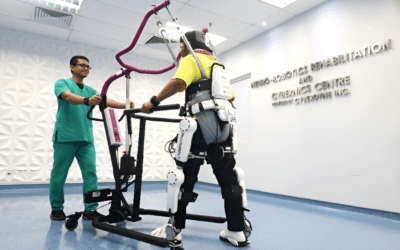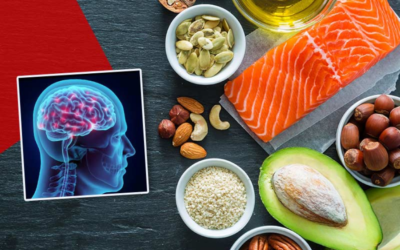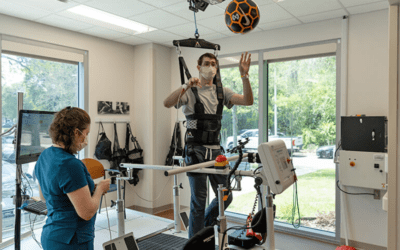Attention Deficit Hyperactivity Disorder is one of the most common Neurodevelopmental disorders of childhood. It is a chronic condition that often begins in childhood and can persist into adulthood. It may contribute to low self-esteem, troubled relationships, and difficulty at school or work.
ADHD Symptoms include:
- being unable to sit still, especially in calm or quiet surroundings.
- constantly fidgeting.
- being unable to concentrate on tasks.
- excessive physical movement.
- excessive talking.
- acting without thinking
- interrupting conversations.
- limited attention, hyperactivity, and impulsiveness
Treatment in Patients with ADHD:
Treatment for Attention Deficit Hyperactivity Disorder (ADHD) can help relieve the symptoms and make the condition much less of a problem in day-to-day life.
Recognising the impact of ADHD on adult lives is the first step toward seeking appropriate treatment.
Attention Deficit Hyperactivity Disorder can be treated using medicine or behaviour therapy, but a combination of both is often best. There are 5 types of medicine used in the treatment of ADHD –
- Methylphenidate
- Lisdexamfetamine
- Dexamfetamine
- Atomoxetine and
- Guanfacine
These medicines are not a permanent cure for ADHD but can help people with the condition concentrate better, be less impulsive, feel calmer, and learn and practise new skills.

Therapy plays a vital role in treating adult ADHD, as it provides individuals with a supportive environment to address specific challenges and develop effective coping strategies.
Several therapeutic approaches can be beneficial for adults with ADHD, including…
- Cognitive-behavioural therapy (CBT):
CBT focuses on identifying and changing negative thought patterns and behaviours. It helps individuals challenge unhelpful beliefs about themselves and develop healthier coping strategies for managing ADHD symptoms.
- Psychoeducation:
Psychoeducation involves providing individuals with knowledge and information about ADHD, its symptoms, and its impact on daily life. This understanding can empower adults with ADHD to make informed decisions and develop effective strategies for managing their symptoms.
- Dialectical Behaviour therapy (DBT)
DBT is a type of therapy that combines CBT with mindfulness and acceptance-based strategies. DBT focuses on teaching individuals, skills to manage intense emotions, which can be particularly helpful for people with ADHD and addiction, as impulsivity is a common symptom of both disorders.
- Motivational interviewing (MI)
MI is a type of therapy that helps individuals identify their reasons for wanting to change and increase their motivation to do so. It can be helpful for individuals with ADHD who may struggle with motivation about treatment. MI is often used as a first step in addiction treatment to help individuals move from contemplating a change to taking action.
- Coaching:
This is a specialised form of coaching designed to support individuals with ADHD. Coaches work with clients to set goals, develop strategies for time management, and provide ongoing support and accountability.
Challenges/Management of ADHD Symptoms:

Managing ADHD symptoms in daily life can be challenging, but with the right strategies, individuals can improve their ability to focus, stay organised, and regulate their emotions. Here are some tips for effectively managing ADHD symptoms:
- Establish a routine: A consistent daily routine can help individuals with ADHD stay organised and manage their time more effectively.
- Break tasks into smaller steps: Breaking down tasks into smaller, more manageable steps can make them feel less overwhelming and increase the likelihood of completion.
- Use visual cues: Visual reminders, such as calendars, to-do lists, and alarms, can help individuals with ADHD remember important tasks and deadlines.
- Practise mindfulness and relaxation techniques: Mindfulness exercises and relaxation techniques, such as deep breathing and meditation, can help individuals with ADHD reduce stress and improve focus.
- Seek support from friends and family: Building a support network of understanding friends and family members can provide valuable emotional support and practical assistance when needed.
- Keep your bedroom completely dark – Do not keep the electronics near you. That’ll give you a good night’s
Alternative Treatments for Adult ADHD:
While medication and therapy are the primary treatment approaches for adult ADHD, some individuals may prefer alternative treatments or seek additional support. It is essential to approach alternative treatments with caution and consult with healthcare professionals to ensure safety and effectiveness.
Some alternative treatments that may be explored include:
- Herbal supplements: Certain herbal supplements, such as omega-3 fatty acids, have been suggested to have potential benefits for ADHD symptoms. However, more research is needed to establish their effectiveness.
- Mind-body practises: Mind-body practises like yoga, tai chi, and acupuncture may help individuals with ADHD manage stress and improve focus. These practises can promote relaxation and overall well-being.
- Neurofeedback: This is a non-invasive technique that aims to train individuals to regulate their brainwave activity. It has shown promise in improving attention and reducing ADHD symptoms.
The Impact of the Disorder on Lives:

ADHD can severely affect an individual’s education, working life, home life, relationships, and social life. The impact of ADHD can become more widespread and disruptive in adulthood as a person’s life becomes more complicated
It’s caused by brain differences that affect attention and behavior in set ways. For example, people with ADHD are more easily distracted than people who don’t have it. ADHD can make it harder to focus, listen well, wait, or take time. Having ADHD affects a person at school, at home, and with friends.
Transforming Lives through ADHD Treatment:
Adults with ADHD face unique struggles that can significantly impact their personal and professional lives. However, seeking appropriate treatment can lead to transformative changes and help individuals with ADHD thrive. A comprehensive treatment approach, including medication, therapy, and lifestyle modifications, can provide individuals with the tools they need to manage their symptoms effectively.
It is important to remember that treatment for adult Attention Deficit Hyperactivity Disorder is not a one-size-fits-all approach. Each individual’s needs and preferences should be taken into account when developing a treatment plan. By understanding ADHD, seeking appropriate treatment, and implementing effective strategies, adults with ADHD can overcome their challenges and achieve success in various aspects of their lives.
The Vital Role of Rehabilitation/Remodulation Devices in ADHD Recovery:
Rehab Centres are designed to help individuals overcome addiction and develop healthy coping mechanisms, not to cure ADHD. They aim to raise awareness, provide insights into challenges, and showcase how the remodulation devices transform lives.
The Rehabilitation of persons with ADHD requires a “multimodal” approach. It consists of the client, parents, teachers, school, peers, and environment. The Rehabilitation process of a person with ADHD is continuous and lifelong, as each developmental stage of a person’s life could bring a different level of challenge and issues.
Finally:
The process of ADHD Rehabilitation covers the medical, psychological, cognitive, social, physical, emotional, and vocational aspects. Rehabilitation of persons with ADHD is essential to reduce the impact of the disorder, improve quality of life, and enhance personal and emotional well-being.
The rehabilitation strategies can be used singularly or in combination depending on the diagnosis and the presenting complaints of the person with ADHD.



